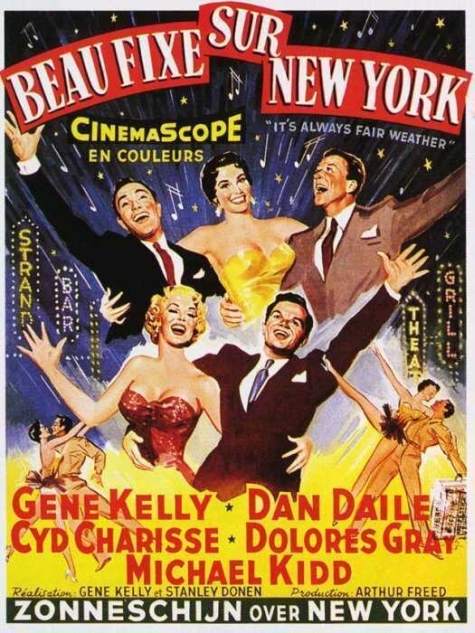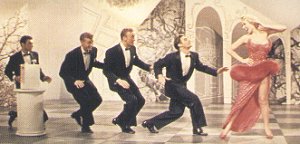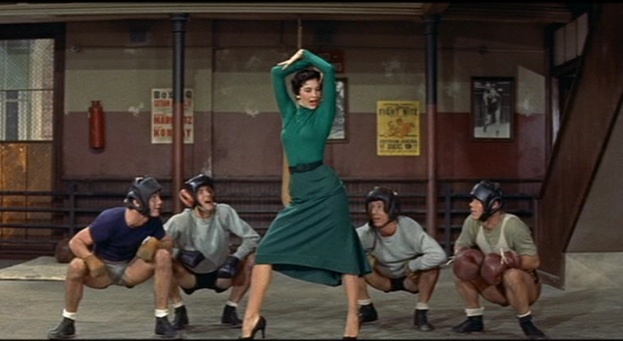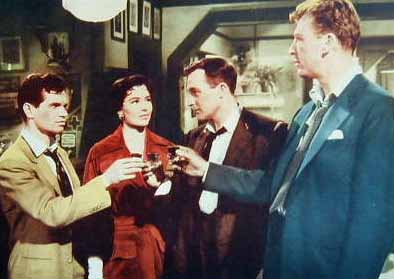IT’S ALWAYS FAIR WEATHER, directed by Stanley Donen and Gene Kelly, written by Betty Comden and Adolph Green, with Kelly, Cyd Charisse, Dan Dailey, Michael Kidd, and Dolores Gray.
Has there ever been a more deceptive title and ad for a movie than this Belgian poster for the depressive 1955 musical IT’S ALWAYS FAIR WEATHER? Not that the original title or the strained happy ending are exactly apt either. [I resaw this movie yesterday, on my last day at Il Cinema Ritrovato, and might have written about this sooner -– i.e., before I returned to Chicago -– if I’d been able to figure out a way to paste in photos on my laptop.] But in fact it expresses more negative feelings about American culture at mid-century than anything by Frank Tashlin. Tashlin, after all, always seems to love his characters, but what mainly typifies the satirical feelings here about television, advertising, and other forms of corruption are disgust, disillusionment, self-hatred, and anger. It seems characteristic that Kelly and Charisse, the romantic leads, never even get to dance together, and that Dolores Gray’s climactic number, “Thanks a Lot, but No Thanks” (see still), registers as a conscious ripoff of Monroe’s glacially bitter “Diamonds Are a Girl’s Best Friend” in Gentlemen Prefer Blondes.
Film scholar Don Crafton, who saw this in Bologna for the first time at the same screening, describes the film as “disjointed,” and considering the weird abrasiveness of some of the bit actors -– Paul Maxey (the fat man from The Narrow Margin) as an advertising executive, Harold Peary (radio’s The Great Gildersleeves) as a TV announcer, Hal March (emcee of The $64,000 Question) chewing up all the available scenery and other actors as a Runyonesque gangster -– he certainly has a point.
It also seems clear that Comden and Green are deliberately cross-referencing aspects of their earlier Freed Unit/Gene Kelly/Stanley Donen musicals, On the Town and Singin’ in the Rain, in order to express various forms of postwar disillusionment. Even my favorite number -– Kelly’s solo “I Like Myself,” an exhilarating tour de force on roller skates -– has to stop traffic in order to project its giddy solipsism, even though it garners only appreciative applause from Manhattan pedestrians, unlike “Singin’ in the Rain,” which featured a skeptical cop.
Yet in spite of all the troubling vibes here, the displayed emotions here feel very authentic, and the occasional lifts -– especially those provided separately, through dancing, by Charisse and Kelly -– are all the more affecting as a consequence. [7/6/08]




